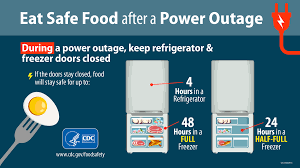How to choose the best air purifier for your home
Pollution is a major problem in today’s world, and one that is only going to worsen as time goes on. Not only does pollution cause illnesses such as asthma and COPD, but it also has a negative impact on the environment. One way in which you can combat this pollution is by using an air purifier in your home. But which one is the best for you?
Table of contents
- What is an air purifier?
- How do air purifiers work?
- Types of air purifiers
- How to choose the best air purifier for your home
- How often should you change the filter on an air purifier?
- What is a HEPA filter and why is it important?
- Conclusion
1. What is an air purifier?
An air purifier is a device that cleans the air in your home of harmful particles and gases. They come in many different shapes and sizes, from small tabletop models to large room-sized systems, and can be used to clean the air before you inhale it or to continuously purify the air as it leaves your home. There are a few things to consider when choosing an air purifier for your home:
Size : Air purifiers come in a variety of sizes, from small tabletop models that can be placed anywhere in your home, to large room-sized systems that need to be mounted on the wall. It’s important to choose one that will fit the size of your home and make sure it has enough filters to meet your needs.
: Air purifiers come in a variety of sizes, from small tabletop models that can be placed anywhere in your home, to large room-sized systems that need to be mounted on the wall. It’s important to choose one that will fit the size of your home and make sure it has enough filters to meet your needs. Type : There are two main types of air purifiers: mechanical filters and electronic filtration systems. Mechanical filters work by trapping particulates with activated charcoal or other materials; electronic filtration systems use sensors to detect bacteria, dust mites, mold spores and other harmful particles and automatically turn on the appropriate filter(s) based on the level of contamination detected.
2. How do air purifiers work?
Air purifiers work by removing harmful particles and gases from the air. Many different types of air purifiers are available, including mechanical, electronic, and ultraviolet air purifiers. Mechanical air purifiers use filters to trap particulates and chemicals. Electronic air purifiers use sensors to detect contaminants in the air and activate a filter to remove them. UV light air purifiers use a light beam to kill bacteria and other microorganisms on the surface ofTEXTURED CURRENTSBLADES.
3. Types of air purifiers
There are a few different types of air purifiers on the market, each with its own benefits and drawbacks.
Active carbon filters are the oldest type of air purifier, and they work by absorbing particles in the air. They tend to be large and expensive, and they can be difficult to clean.
Pumped-filter systems use an electric motor to move the filter around, which helps to trap larger particles. They’re generally easier to clean than active carbon filters, but they can be more expensive.
electronic air purifiers use electronic sensors to detect pollutants in the air and then release a controlled amount of ozone or ultraviolet light to kill them. These systems are generally smaller and less expensive than other types of air purifiers, but they may not be effective against very small particles or chemicals.
4. How to choose the best air purifier for your home
When choosing an air purifier for your home, there are a few things to consider. First, the size of the room and the type of filter you need will dictate the type of air purifier you should buy. Second, consider your budget. Third, make sure to read the reviews before making your purchase. Finally, be sure to test out your new air purifier in a small area first to make sure it’s working properly. Here are tips on how to choose the best air purifier for your home:
If you have a large room or several rooms that need improvements with regards to indoor air quality, then an electronic air purifier is probably the best option for you. These machines use sensors and cartridges to detect pollutants and fill the room with activated oxygen or ozone gas accordingly. They’re fairly expensive up front, but they can last several years and save you money in the long run by eliminating harmful allergens and toxins from your environment.
If you only have one or two small rooms that need cleaning, an activated carbon filter may be a better option for you. These filters absorb contaminants like benzene, formaldehyde, and volatile organic compounds (VOCs). Place them in areas where high levels of dust, smoke, or other chemical exposures occur. These filters are also good for people with asthma or other breathing issues because they reduce airborne particles without affecting airflow. If you have a tight budget or just want an automatic type machine that doesn
5. How often should you change the filter on an air purifier?
Filter changes are essential for Air Purifiers. The U.S. Environmental Protection Agency (EPA) recommends that you change the filter on an air purifier every month or every 3 months, depending on the type of air purifier and the level of pollution in your home. If you have a very high level of pollution, you may need to change the filter more often. To test if your air purifier needs a filter change, turn it off and then back on while holding your breath. If you can smell then release the breath, your filter needs to be changed
6. What is a HEPA filter and why is it important?
A HEPA filter is a type of air purifier that uses a special type of filter to capture particles as small as 2.5 microns in width, which are the most harmful to the health of people and pets. These filters are important because they can help to reduce the amount of dust, pollen, smoke, and other particles that are breathed in over time. In addition, HEPA filters can also help to remove chemical fumes and other smells from the air.
Conclusion
Whether you are looking to improve the air quality in your home or just want to make sure that you’re taking care of your family’s respiratory health, an air purifier can be a valuable piece of equipment. There are a number of factors to consider when choosing an air purifier, including the size and type of room you need it for, the pollutants that are present in your environment, and your budget. Hopefully this guide has helped you select the best air purifier for your needs.




